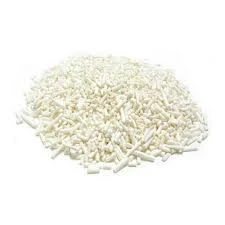
Understanding E224 Preservative and Its Applications in Food Preservation
Understanding E224 Preservative Safety, Uses, and Regulations
E224, also known as Potassium Metabisulfite, is a widely used preservative in the food and beverage industry. Renowned for its antioxidant and antimicrobial properties, E224 plays a crucial role in extending the shelf life of various products, particularly in wine production and dried fruits. However, as with all additives, its use comes with both benefits and concerns that merit a closer examination.
What is E224?
E224 is a sulfur-based compound that is primarily recognized for its preservative qualities. It appears as a white powder or crystalline solid that, when dissolved in water, releases sulfur dioxide (SO2). This release is significant in inhibiting the growth of spoilage organisms, yeasts, and molds, while also preventing oxidative changes in food products. As a result, it helps maintain flavor and color, making it invaluable for manufacturers.
Common Applications
E224 is predominantly utilized in the winemaking industry. It is added to must (the freshly crushed fruit juice) and wine to stabilize the product, prevent oxidation, and inhibit unwanted microbial activity. Additionally, E224 finds applications in the preservation of dried fruits, such as apricots and raisins. It not only helps retain the fruit's color but also extends its shelf life, offering consumers convenient options for healthy snacking.
Apart from food, E224 is used in various other sectors, including cosmetics and pharmaceuticals, where its properties are leveraged to enhance product stability and efficacy.
Health and Safety Concerns
e224 preservative

Despite its benefits, E224 is not free from controversy. Health concerns primarily revolve around the potential for allergic reactions, particularly in sensitive individuals such as asthmatics. The inhalation of sulfur dioxide, which can occur when E224 is improperly handled, poses respiratory risks. Therefore, regulatory bodies, including the European Food Safety Authority (EFSA) and the U.S. Food and Drug Administration (FDA), have established guidelines for its permissible levels in food products.
For most consumers, the ingestion of E224 within regulated amounts is considered safe. However, it's important for those with specific sensitivities to be aware of its presence in food labels. This highlights the need for proper labeling practices to inform consumers and enable them to make informed choices.
Regulatory Framework
In the European Union, E224 is classified as a food additive and is subject to stringent regulations. The maximum allowable limits for E224 in different food categories are defined, ensuring its usage aligns with safety standards. Similarly, in the United States, the FDA permits its use, provided it adheres to established safety levels.
In addition to government regulations, the food industry has increasingly leaned toward transparency, driven by consumer demand for cleaner labels. Many manufacturers have begun to explore natural alternatives to synthetic preservatives, leading to a surge in organic and natural product lines that limit or exclude ingredients like E224.
Conclusion
E224 (Potassium Metabisulfite) serves a vital role in food preservation, offering benefits that extend the shelf life and quality of various products. While its use is generally recognized as safe by regulatory agencies, awareness of potential health risks, especially for sensitive individuals, is essential. As consumer preferences shift toward more natural ingredients, the future of E224 in the food industry may be subject to change, prompting manufacturers to seek alternatives while balancing efficacy and safety.
In summary, E224 remains a crucial player in the realm of food preservation but requires responsible use and transparency in labeling. As developments in food technology continue, the dialogue around E224 will likely evolve, focusing on safety, consumer health, and the integrity of food products in an increasingly health-conscious market.
-
Nitrile Rubber Honoring Strict Production StandardsNewsAug.22,2025
-
Aspartame Ingredients Honoring Food Safety ValuesNewsAug.22,2025
-
Fertilizer for Balanced Plant NutritionNewsAug.22,2025
-
Cyanide Gold Processing with High Purity AdditivesNewsAug.22,2025
-
Formic Acid in Textile Dyeing ApplicationsNewsAug.22,2025
-
Aluminum Hydroxide Gel in Skincare ProductsNewsAug.22,2025
-
Regulatory Compliance for Global Mining Chemicals UseNewsAug.12,2025
Hebei Tenger Chemical Technology Co., Ltd. focuses on the chemical industry and is committed to the export service of chemical raw materials.
-

view more DiethanolisopropanolamineIn the ever-growing field of chemical solutions, diethanolisopropanolamine (DEIPA) stands out as a versatile and important compound. Due to its unique chemical structure and properties, DEIPA is of interest to various industries including construction, personal care, and agriculture. -

view more TriisopropanolamineTriisopropanolamine (TIPA) alkanol amine substance, is a kind of alcohol amine compound with amino and alcohol hydroxyl, and because of its molecules contains both amino and hydroxyl. -

view more Tetramethyl Thiuram DisulfideTetramethyl thiuram disulfide, also known as TMTD, is a white to light-yellow powder with a distinct sulfur-like odor. It is soluble in organic solvents such as benzene, acetone, and ethyl acetate, making it highly versatile for use in different formulations. TMTD is known for its excellent vulcanization acceleration properties, which makes it a key ingredient in the production of rubber products. Additionally, it acts as an effective fungicide and bactericide, making it valuable in agricultural applications. Its high purity and stability ensure consistent performance, making it a preferred choice for manufacturers across various industries.





